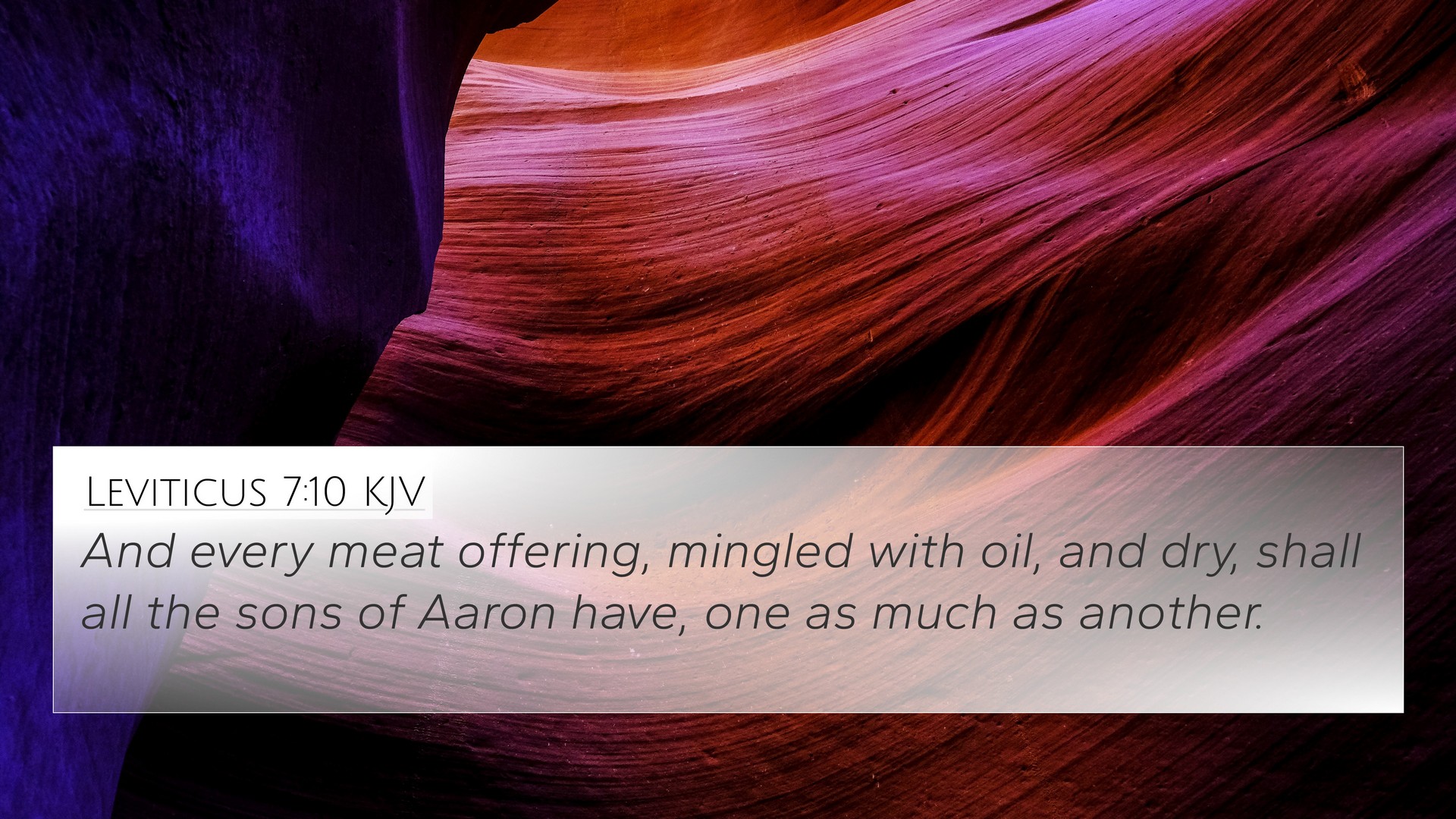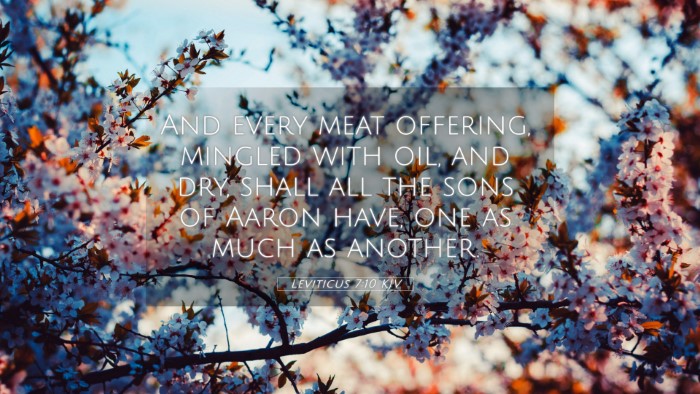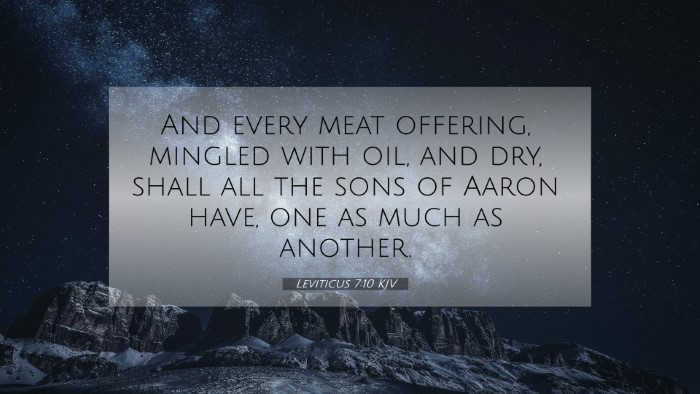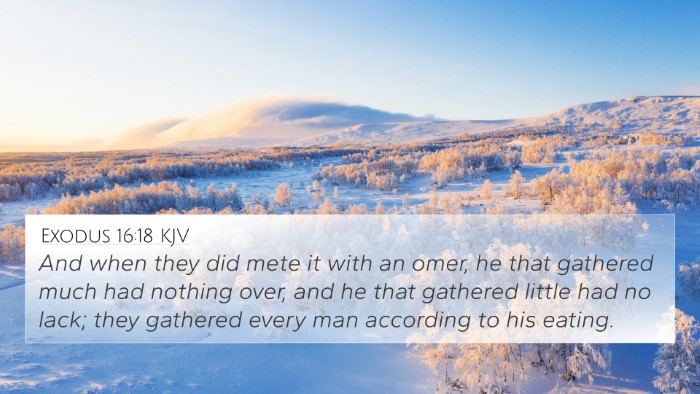Understanding Leviticus 7:10
Leviticus 7:10 states: "And every meal offering, mingled with oil, and dry, shall all the sons of Aaron have, one as much as another." This verse highlights the equitable distribution of offerings among the priests and serves as a significant lesson on sharing and community in worship.
The implications of this verse stretch beyond mere instructions concerning offerings; it emphasizes God's desire for order and fairness within the worship practices of Israel.
Key Themes and Insights
-
Equity in Worship: All priests are afforded the same portion, illustrating that in God’s economy, there are no favorites. This is reiterated across different passages that highlight fairness within the community.
-
God’s Provision: The meal offerings serve as a reminder of God's goodness and provision, showcasing how the community is nourished both physically and spiritually.
-
Unity Among the Priests: By receiving equal shares, the priests are united in their service to God, reinforcing the concept of collective responsibility in worship.
-
Foreshadowing Christ: Many interpretations suggest that the meal offerings symbolize Christ’s sacrifice, which is available to all. The equal distribution can be seen as symbolic of the equal access to Christ for all believers.
Connections to Other Bible Verses
This verse can be connected to various other Scriptures, emphasizing themes of sharing, community, and God's fairness. Below are some relevant examples:
- Exodus 29:33: Discusses the priests partaking of the offerings provided as their due.
- Numbers 18:12: Details the gifts provided to the priests, emphasizing God’s provision.
- Matthew 20:1-16: The parable of the workers in the vineyard reinforces the idea of equity and God's sovereignty in dispensing grace.
- 1 Corinthians 12:12-27: Illustrates the concept of the body of Christ functioning together, where all parts are equally important.
- 2 Corinthians 9:6-7: Discusses generosity in giving and its relation to the heart's intention.
- Philippians 4:10-19: Paul acknowledges the contributions of the church and the mutual support within the faith community.
- Acts 4:32-35: Highlights the early church's practice of sharing possessions, ensuring that no one lacked.
Comparative Bible Verse Analysis
By examining Leviticus 7:10 alongside these verses, readers can gain a holistic understanding of how the principles of sharing, equitable treatment, and community support are woven through the fabric of Scripture.
How to Use Bible Cross-References
Utilizing a bible cross-reference guide can greatly enhance your study. Here are some tools you might consider:
- Bible concordance: A tool that allows users to find all occurrences of a given word or phrase.
- Cross-reference Bible study: Refers to studying different passages together to see their relationships and themes.
- Bible reference resources: Various guides and tools available that provide insights into connected Scriptures.
- Bible chain references: A method of linking verses thematically for deeper understanding.
Conclusion
In summary, Leviticus 7:10 serves as a profound reminder of God’s principles of equity, community, and shared worship. Understanding this verse within the context of the greater scriptural narrative enriches one's spiritual journey and provides valuable lessons for living in community.




